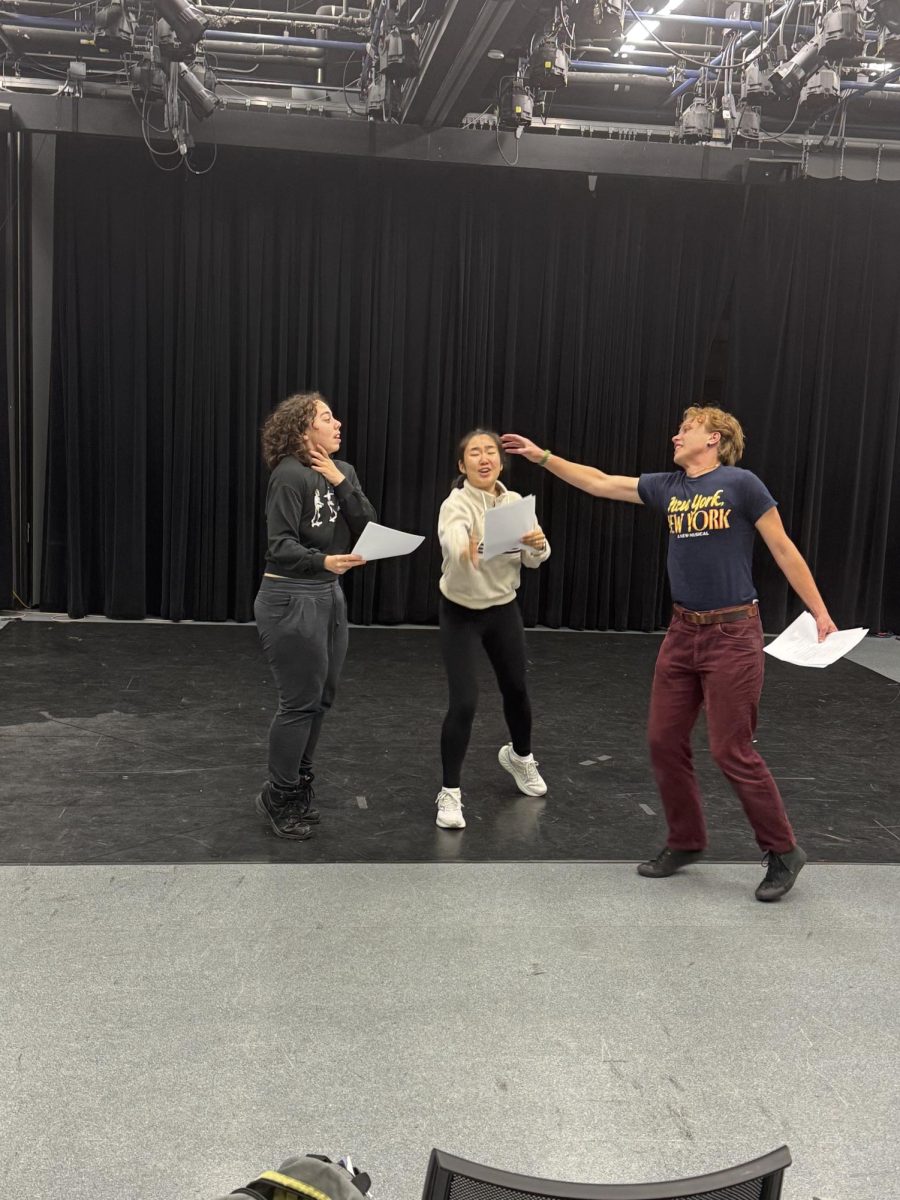Instructor shares a historical perspective on the Capitol Riots
February 3, 2021
Much has been said on the events of the Capitol riots that occurred on Jan. 6, and the aftermath is still being seen in the form of ongoing government investigations and public discussion trying to put such an unprecedented event in context. Looking back on the history of America, and previous times of conflict and unrest, show us a bigger picture of the feelings in our past that are echoing into the present to bring an atmosphere of division. Madison College History Professor, Johnathon Pollack shared some of his thoughts on the events of Jan. 6, and similar events in American history.
“One of the pre-Civil War parallels that really stuck out to me was Charles Sumner,” said Pollack. Charles Sumner was an abolitionist pre–Civil War, who made a speech speaking out against slavery in the House of Representatives. His stance, as well as insulting Senator Andrew Butler of South Carolina, offended Representative Preston Brooks so much that he beat Charles Summer with a cane in a brutal attack within the House of Representatives itself. One of the few instances of violence between Americans within the U.S. Capitol.
“The picture that is widely circulated, it got a whole lot of publicity, it is a picture of a guy with a confederate flag walking in front of a portrait… so the portrait in the background, Sumner, that’s Charles Sumner.” The imagery of the first confederate flag to enter the Capital building, with Charles Sumner himself in the background is a sad reminder of previous times that discourse fell apart and violence took over.
Preston Brooks ended up resigning from congress over his caning of Sumner but did not face any big consequences. Pollack stated that he even went on speaking tours, often receiving new canes from supporters in case he had the opportunity to use one again. Brooks even ran for congress again later, and was reelected, though he died before taking office. This sort of open support for extreme measures to deal with opposition is a dangerous trend that does not seem to have left America.
The feeling that opposition is the same as condemning the other side has also grown of late. There was a belief that when Lincoln was elected, that he was going to be entirely anti-south. Lincoln had no great love for slavery, and his “opposition to slavery extended to slavery should not expanded into new territories as they become states.”
“That was enough, and Southern states interpreted that as: Lincoln will crush the slave system if he is elected. So, I think that same kind of dynamic that a mild dissent from an idea, or a mild critique of it is a condemnation, is something that I see from (Trump).” The idea that any form of dissent or opposition amounts to completely rejecting the other side has grown lately.
This sort of division in America has been brewing for a long time. A recent thing that Pollack feels has led to this sort of lack of interaction with Democrats and Republicans and that has killed the idea of cooperation was the Hastert Rule. The Hastert Rule was coined by former U.S. Speaker of the House Dennis Hastert (R). The rule is that a majority speaker will not even entertain a vote on an issue that does not have majority support within the party. Congress members would even be held to stay on the party line while voting through the possibility of the Republican party supporting other candidates in their next primary, hurting their chances for a reelection, or assigning Congress members to dead end committees to make their terms less impactful if they voted against the party’s stance.
“The net result of this idea, the result of the Hastert rule… was this increasing kind of sense that Republicans didn’t view Democrats as their opposites, and as like their ideological foes with a different philosophy towards the size and scope of government, or people who might disagree with them on aspects of foreign policy, typical differences between the parties. It actually created an idea that Democrats are not legit, that negotiating with Democrats is like negotiating with a four-year-old.”
This idea of legitimacy, that opponents are not legit, and that the government is not legit, was last debated on a large scale right after the Civil War. The only successful coup in American history took place in this time, when a mob of white supremacists in Wilmington, North Carolina, influenced elections with violence, massacred many in the Black community, and unseated over 100 democratically elected Black government officials so they could appoint their preferred mayor. “That was a way of kind of rendering a Black led government, or even a government with significant Black participation illegitimate.” And most of the crowd were never arrested and avoided consequences for these actions.
“They feel that the government coming in is not legit … if we believe the polls then this 70% majority of Republicans saying Biden should not be president. That he didn’t win the election, that there was fraud involved, and that’s pretty new. The whole idea that democratic election winners have to prove that they are legitimate, that to me is sort of a reconstruction echo.”
“The insurrection has demonstrated that the anti-democratic sentiment out there is really strong, or at least is strong enough for thousands of people to go to Washington and invade the capitol. And as we learn more about it, actually try to execute members of congress and possibly the Vice President.”
Pollack sees echoes of President James Buchanan from how Trump has responded to these events. While the nation was becoming more divided leading up to the Civil War, Buchanan chose to stay mostly absent and silent as president. He called for some national days of prayer but didn’t take any real efforts to unite the nation, “that sort of silence is sort of similar, and similarly kind of ominous,” said Pollack. As history showed, refusing to take any sort of stance to oppose division and extreme actions across the country, led to the problem escalating to a level we hope to never see again.































